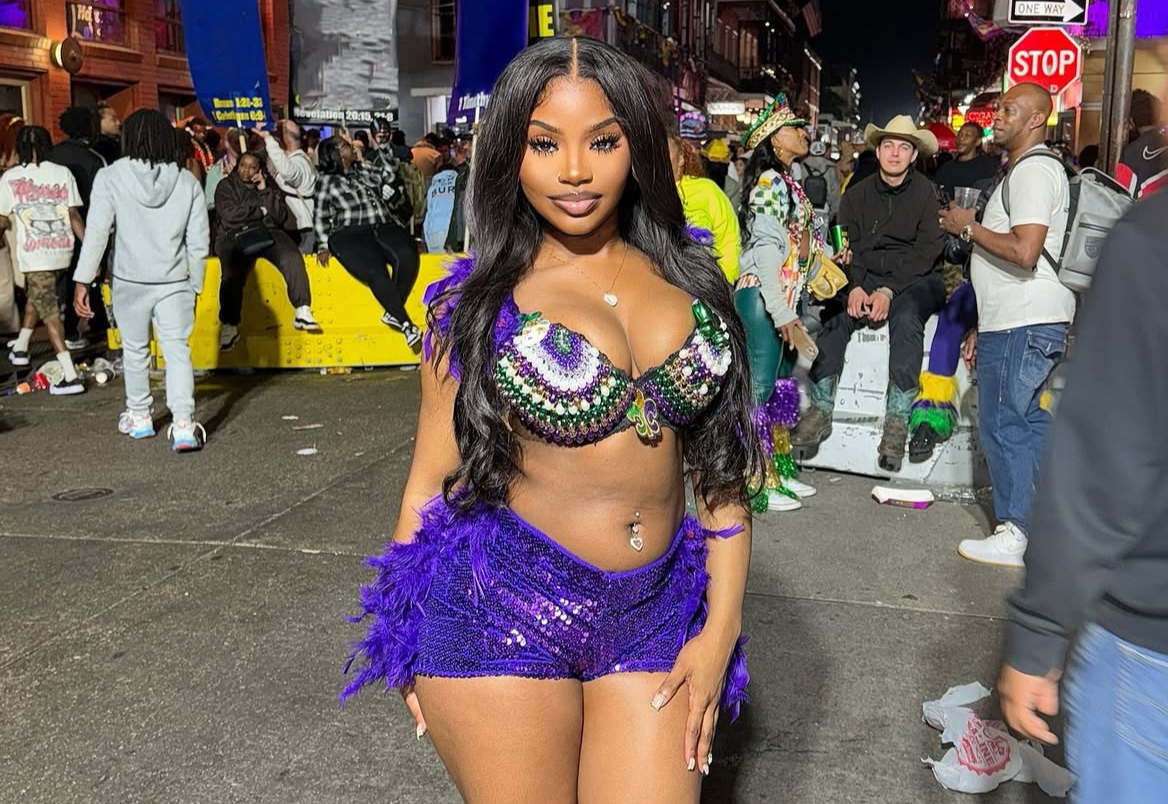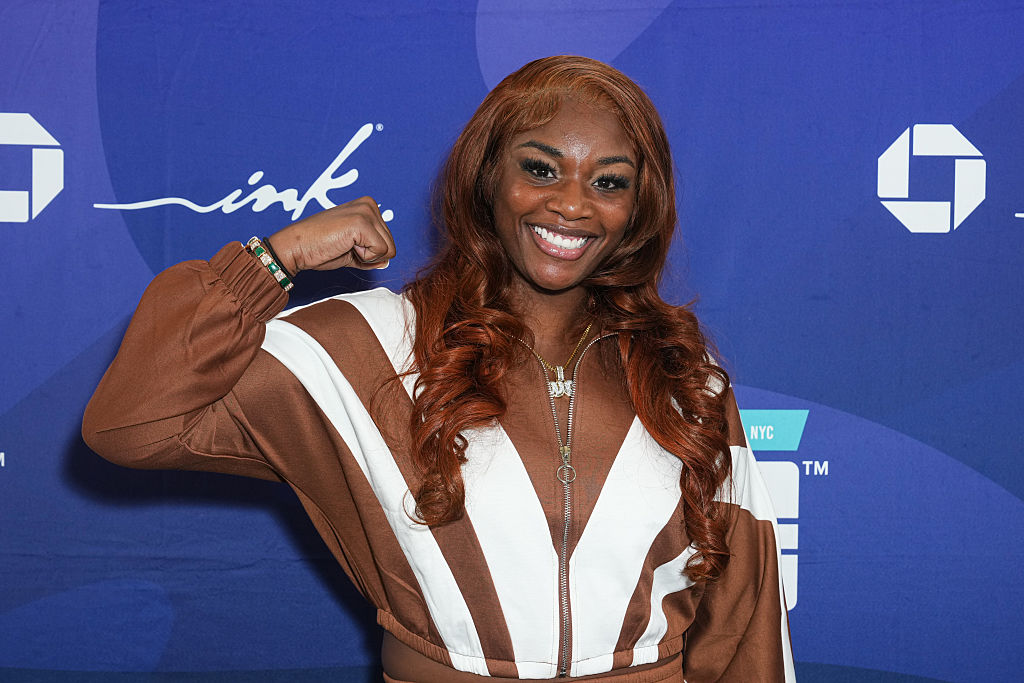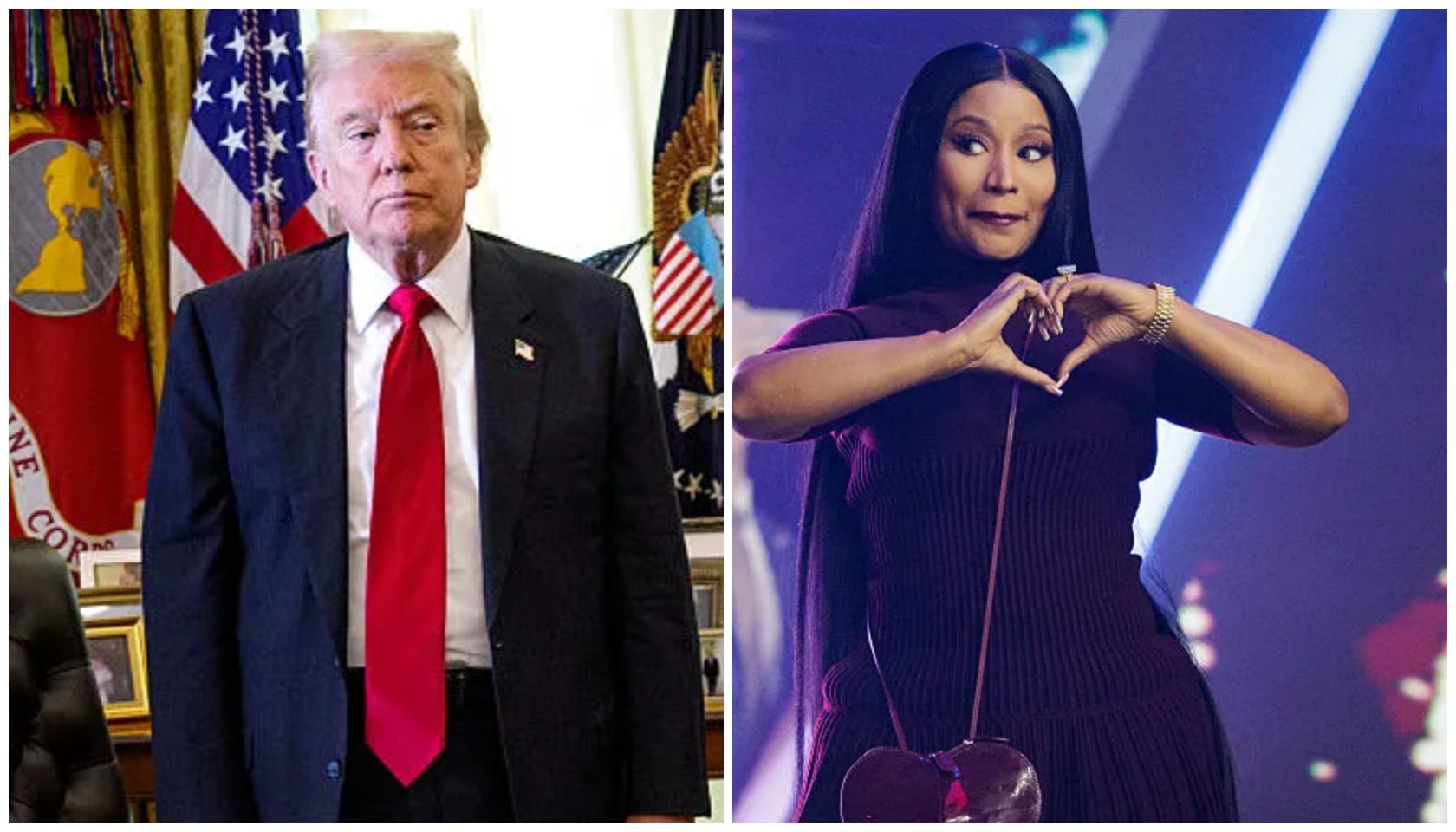Niecy Nash-Betts Opens Up About Hosting 'Queer West' Podcast
BOSSIP Exclusive: ‘Queer West’ Host Niecy Nash-Betts Talks Gay Rodeos, Calamity Jane’s Gender Identity And More
Share the post
Share this link via
Or copy link
Happy Gay Pride Day! Did you know that June 28 is celebrated as Pride Day in multiple countries around the world?

Source: Courtesy / Audible
Pride Day is celebrated on June 28 to celebrate the Stonewall Riots that took place in New York in 1969, when multiple demonstrations were sparked in protest against a police raid that took place in the early hours of June 28 at the Stonewall Inn pub in Greenwich Village. This Pride Month has been truly enlightening for us, largely because of the Audible original podcast Queer West, hosted by Emmy Award-winning actress Niecy Nash-Betts.
Queer West: How The West Was Fabulous takes a deep dive into some truly fascinating stories of queer pioneers of the wild west, country music and frontier history and culture. We chatted with Nash-Betts about the riveting nine-episode series which launched this month. Nash-Betts spoke about her entrance into the podcast space, recording with her partner Jessica (who she lovingly refers to in the series as her “hersband”) and more.
“Everybody has a story, and as I’m learning it’s dawning on me the experiences that I had growing up was the genesis for the jumping off point in the conversation,” Nash-Betts told BOSSIP. “I had the added luxury of being able to have my spouse as my engineer so it was that extra layer of somebody who knows you and it’s like, ‘Remember this? Remember when that happened?’ So that’s how it came to be as seamless as it was.
The show’s tagline is How The West Was Fabulous but the stories told run the gamut from celebratory to melancholy to mysterious. The range reflects the true diversity of the human experience – something Nash-Betts says she felt right at home with.
“When you’re Black and used to the backyard barbecue, there is always going to be a space in it where there is joy and pain, like the song says,” Nash-Betts said. “Joy and pain, sunshine and rain. There’s always going to be a point where you got to talk about the hard part, not just the shiny part. There’s the for the culture part and then there’s the history. Those are two different things even in the queer community, or I should say especially.”
tories of the American West often rely on tired tropes of tough cowboys, but real history is much less straight and narrow and way more interesting. Join host Niecy Nash-Betts for a wild round-up of LGBTQ+ lives that got buried in the dust of popular culture and history and take a look at how queer people continue to shape the West today–from gay rodeos to two-spirit identity to trans truckers.
We really enjoyed every episode of the podcast, which goes beyond the stereotypical gay cowboy stories to explore how queer people have played an important role in shaping the West. The stories centered feature familiar characters like Calamity Jane and the cast of Oklahoma and less familiar ones, such as the man who made the first gay country album and an exploration of two-spirit people in indigenous cultures.
“I just remember having extensive conversations with my spouse after I recorded ‘Calamity Jane,'” Nash-Betts recalled when asked about the tales that drew her in deepest. “Was she masculine identified? And how everyone thought at that point in time she was so cool, right? When did it shift to be like, ‘let me put shame on you… let me tell you 10 reasons why you going to hell.’ I just I thought the conversations that she and I had on the other side of that story is what made it so interesting. And then not really even fully being able to put your finger on exactly what was happening with “Mrs. Nash.” You always take a story and you think of what that is in modern day? Was she trans? Some of the harder stories are really interesting and when you think about how when we unpack how rough and tough everybody thought the rodeo was and it was the shiniest gayest thing in the world, between caps and rhinestones and tassels. I mean, come on!”
Fans of Nash-Betts will be excited to experience her in the podcast medium, where she brings both sensitivity and her comedic flair to the microphone.
“When I do anything I try to bring my true self to whatever the project is,” Nash-Betts told BOSSIP. “Even when I’m sad I’m funny, that doesn’t go away. Especially in the harder stories, it’s like ‘Where can I find a little levity?’ So that there is a ride that you go on and it’s not just one note, right?!”
Queer West is Nash-Betts first time working on a podcast but if the actress has it her way, it won’t be her last. She told us that in addition to working with her spouse Jessica Betts on two songs (‘Pride’ and ‘I’m A Winner’) they have another project in the works they hope may land at Audible.
“We like working together and any time we can find the way we’re like, ‘Yeah let’s do this!”” Nash-Betts told BOSSIP. “It’s just my favorite thing ever. I love ‘bringing your spouse to work day.’ I don’t care if I’m going in the studio with her or she’s coming on the set with me. I’ve had the luxury of being on her side of the line with these two songs we have out right now and she’s been on my side of the line with Claws and Rookie FEDS. Any time we get the opportunity for our arts to intersect we take it. I hope Audible is with this show we want to pitch them because we have such a good time.”
We’ll have to see what happens to that, but in the meantime you can listen to Nash-Betts (her spouse/engineer Jessica Betts makes a couple of quick guest appearances as well) on all nine episodes of Queer West: How The West Was Fabulous on Audible.
Hit the flip for a quick episodic breakdown

Source: Courtesy / Audible
Episode 1: “Welcome, Y’all!”
Saddle up and get ready to make some lifestyle choices! Host Niecy Nash-Betts introduces herself and the series–explaining how folks like her, a Black Hollywood star who’s married to a woman, find power in sorting out their place in the American West by bucking the typical stereotypes. From John Wayne to Lil Nas X, dressing the part has always been part of the package in coming to terms with a complicated history.
Episode 2: “Oklahomos!”
The musical Oklahoma! is a saga of the plains often performed as a high school musical and presented as an American Classic. But the man behind its creation–a gay Cherokee playwright named Lynn Riggs–is barely known today. We get to know Lynn Riggs, who mined the yearning in old cowboy songs to express himself, and ended up revealing the spiritual connections between the West, musicals, and queer identity.
Episode 3: “The Man in Lavender”
Country cred is a confusing mix of cheesy marketing and hard-to-put-your-finger-on-it authenticity. And that leaves a lot of room for country music to speak to tons of queerdos and fans from all walks of life. Back in 1973, a real-deal outlaw musician named Patrick Haggerty gave the finger to all the rules in Nashville and made the first gay country album–breaking a mold that, decades later, still needs remaking.
Episode 4: “Calamity Jane”
Calamity Jane–whose name became shorthand for gender-bendy nonconformity in the old West–was a legend in her own time, and remains a puzzle in ours. But in 1953, when homosexuality was illegal in every state, Doris Day brought her to life in a very queer film with a hit song that echoed off the walls of gay bars for decades.
Episode 5: “A Gay Utopia in Alpine County”
In 1970, an earnest vision to create a gay utopia took on a life of its own—by turns a prank, a punchline, a valid plan, and a source of panic for right-wing pundits. We’ll look at how a proposal to take over a small town in the Sierra Nevadas became a national story that forever changed how the media covered gay and lesbian people.
Episode 6: “Deborah’s Mission”
Mission-style has come to be part of California’s vibe…from architecture to burritos. But two-spirit writer Deborah Miranda is flipping the picture of California’s missions, and helping us to see California’s real history. As a California Indian whose sexuality is deeply tied to her understanding of herself and her community, Deborah’s story about finding her ancestors and finding her truth is the work of a lifetime.
Episode 7: “Old Mrs. Nash”
This is a story about how queer stories get erased from the history of the West, and why. At the very moment that new ideas about sexuality (and the words hetero and homosexual) were gaining ground in America, there was a huge freak-out happening about “the death of the frontier”. The ways these ideas collided in a battle about American identity show the power of questioning whose history matters. And this reflects the way we see not just the past but our current moment and future. One powerful example: Old Mrs. Nash (no relation to Niecy!), a Mexican laundress for General Custer in the 1870s.
Episode 8: “Gay Rodeo”
In the 1980s, the rodeo became a lifeline for queer folks to cowboy up and be themselves out West. Gay men, especially, found a place to be country and be out and proud at a time when that could cost them everything. Then, when the AIDS crisis hit, gay rodeo became a life-saving community, a place to stare down the odds and cheer each other on. But can an organization confronting the myths of a bygone past find a way to honor its own history without that getting in the way of moving into the future?
Episode 9: “Concrete Cowboys”
Are cowboys…passé? Take ‘em or leave ‘em, we can’t seem to quit ‘em. One form of modern-day cowboy is the trucker–or concrete cowboy. We meet a Black lesbian trucker who finds solace in a kind of cowboy code of ethics and explore how modern queer and trans truckers find freedom in being lone wolves on the open road. But independence can be a double-edged sword for drivers who are trying to be both themselves and stay safe. Our series ends out on the open road, reflecting on the many ways queerness embodies the myths and ideals of America itself: bold, brave, authentic, system-bucking, and always changing.
- Life Of The Mardi! A Gallery Of Beaded Baddies, Pretty Sheauxstoppers & Jazzy Belles Who Let The Good Times Roll At Mardi Gras 2026
- Life Of The Mardi! A Gallery Of Beaded Baddies, Pretty Sheauxstoppers & Jazzy Belles Who Let The Good Times Roll At Mardi Gras 2026, Vol. 2
- Grand Tussle! 50 Cent Goes Low Trolling Tiny, King Harris Takes It To Hell: ‘Your Mama Dead AF! Go Dig Her Up!’
Stories From Our Partners
-

Life Of The Mardi! A Gallery Of Beaded Baddies, Pretty Sheauxstoppers & Jazzy Belles Who Let The Good Times Roll At Mardi Gras 2026
-

Whew Lawd! The Hottest Thirst Traps Of The Week, Vol. 131
-

Whew Lawd! The Hottest Thirst Traps Of The Week, Vol. 132
-

Mu$t Be Niiiice! The Most Extravagant Valentine's Day Gifts Of 2026








